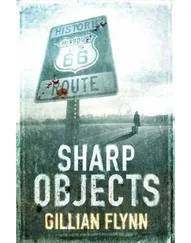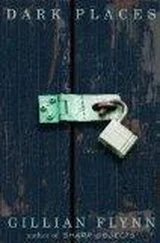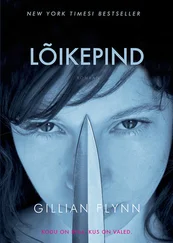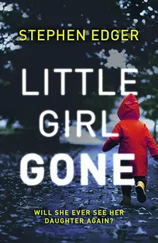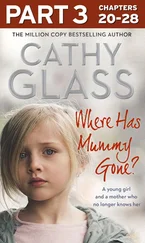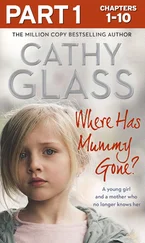It was a fairly awful reminder, the dearth of good memories we had since our move, that my wife was forced to pick Hannibal for her treasure hunt.
I reached Hannibal in twenty minutes, drove past the glorious Gilded Age courthouse that now held only a chicken-wing place in its basement, and headed past a series of shuttered businesses—ruined community banks and defunct movie houses—toward the river. I parked in a lot right on the Mississippi, smack in front of the Mark Twain riverboat. Parking was free. (I never failed to thrill to the novelty, the generosity of free parking.) Banners of the white-maned man hung listlessly from lamp poles, posters curled up in the heat. It was a blow-dryer-hot day, but even so, Hannibal seemed disturbingly quiet. As I walked along the few blocks of souvenir stores—quilts and antiques and taffy—I saw more for-sale signs. Becky Thatcher’s house was closed for renovations, to be paid for with money that had yet to be raised. For ten bucks, you could graffiti your name on Tom Sawyer’s whitewashed fence, but there were few takers.
I sat in the doorstep of a vacant storefront. It occurred to me that I had brought Amy to the end of everything. We were literally experiencing the end of a way of life, a phrase I’d applied only to New Guinea tribesmen and Appalachian glassblowers. The recession had ended the mall. Computers had ended the Blue Book plant. Carthage had gone bust; its sister city Hannibal was losing ground to brighter, louder, cartoonier tourist spots. My beloved Mississippi River was being eaten in reverse by Asian carp flip-flopping their way up toward Lake Michigan. Amazing Amy was done. It was the end of my career, the end of hers, the end of my father, the end of my mom. The end of our marriage. The end of Amy.
The ghost wheeze of the steamboat horn blew out from the river. I had sweated through the back of my shirt. I made myself stand up. I made myself buy my tour ticket. I walked the route Amy and I had taken, my wife still beside me in my mind. It was hot that day too. You are BRILLIANT . In my imagination, she strolled next to me, and this time she smiled. My stomach went oily.
I mind-walked my wife around the main tourist drag. A gray-haired couple paused to peer into the Huckleberry Finn house but didn’t bother to walk in. At the end of the block, a man dressed as Twain—white hair, white suit—got out of a Ford Focus, stretched, looked down the lonely street, and ducked into a pizza joint. And then there we were, at the clapboard building that had been the courtroom of Samuel Clemens’s dad. The sign out front read: J. M. Clemens, Justice of the Peace .
Let’s sneak a kiss … pretend we just got hitched .
You’re making these so nice and easy, Amy. As if you actually want me to find them, to feel good about myself. Keep this up and I’ll break my record .
No one was inside. I got down on my knees on the dusty floorboards and peered under the first bench. If Amy left a clue in a public place, she always taped it to the underside of things, in between the wadded gum and the dust, and she was always vindicated, because no one likes to look at the underside of things. There was nothing under the first bench, but there was a flap of paper hanging down from the bench behind. I climbed over and tugged down the Amy-blue envelope, a piece of tape winging off it.
Hi Darling Husband,
You found it! Brilliant man. It may help that I decided to not make this year’s treasure hunt an excruciating forced march through my arcane personal memories.
I took a cue from your beloved Mark Twain:
“What ought to be done to the man who invented the celebrating of anniversaries? Mere killing would be too light.”
I finally get it, what you’ve said year after year, that this treasure hunt should be a time to celebrate us, not a test about whether you remember every thing I think or say throughout the year. You’d think that would be something a grown woman would realize on her own, but … I guess that’s what husbands are for. To point out what we can’t see for ourselves, even if it takes five years.
So I wanted to take a moment now, in the childhood stomping grounds of Mark Twain, and thank you for your WIT. You are truly the cleverest, funniest person I know. I have a wonderful sense memory: of all the times over the years you’ve leaned in to my ear—I can feel your breath tickling my lobe, right now, as I’m writing this—and whispered something just to me, just to make me laugh. What a generous thing that is, I realize, for a husband to try to make his wife laugh. And you always picked the best moments. Do you remember when Insley and her dancing-monkey husband made us come over to admire their baby, and we did the obligatory visit to their strangely perfect, overflowered, overmuffined house for brunch and baby-meeting and they were so self-righteous and patronizing of our childless state, and meanwhile there was their hideous boy, covered in streaks of slobber and stewed carrots and maybe some feces—naked except for a frilly bib and a pair of knitted booties—and as I sipped my orange juice, you leaned over and whispered, “That’s what I’ll be wearing later.” And I literally did a spit take. It was one of those moments where you saved me, you made me laugh at just the right time. Just one olive, though. So let me say it again: You are WITTY. Now kiss me!
I felt my soul deflate. Amy was using the treasure hunt to steer us back to each other. And it was too late. While she had been writing these clues, she’d had no idea of my state of mind. Why, Amy, couldn’t you have done this sooner?
Our timing had never been good.
I opened the next clue, read it, tucked it in my pocket, then headed back home. I knew where to go, but I wasn’t ready yet. I couldn’t handle another compliment, another kind word from my wife, another olive branch. My feelings for her were veering too quickly from bitter to sweet.
I went back to Go’s, spent a few hours alone, drinking coffee and flipping around the TV, anxious and pissy, killing time till my eleven P.M. carpool to the mall.
My twin got home just after seven, looking wilted from her solo bar shift. Her glance at the TV told me I should turn it off.
“What’d you do today?” she asked, lighting a cigarette and flopping down at our mother’s old card table.
“Manned the volunteer center … then we go search the mall at eleven,” I said. I didn’t want to tell her about Amy’s clue. I felt guilty enough.
Go doled out some solitaire cards, the steady slap of them on the table a rebuke. I began pacing. She ignored me.
“I was just watching TV to distract myself.”
“I know, I do.”
She flipped over a Jack.
“There’s got to be something I can do ,” I said, stalking around her living room.
“Well, you’re searching the mall in a few hours,” Go said, and gave no more encouragement. She flipped over three cards.
“You sound like you think it’s a waste of time.”
“Oh. No. Hey, everything is worth checking out. They got Son of Sam on a parking ticket, right?”
Go was the third person who’d mentioned this to me; it must be the mantra for cases going cold. I sat down across from her.
“I haven’t been upset enough about Amy,” I said. “I know that.”
“Maybe not.” She finally looked up at me. “You’re being weird.”
“I think that instead of panicking, I’ve just focused on being pissed at her. Because we were in such a bad place lately. It’s like it feels wrong for me to worry too much because I don’t have the right. I guess.”
“You’ve been weird, I can’t lie,” Go said. “But it’s a weird situation.” She stubbed out her cigarette. “I don’t care how you are with me. Just be careful with everyone else, okay? People judge. Fast.”
Читать дальше

